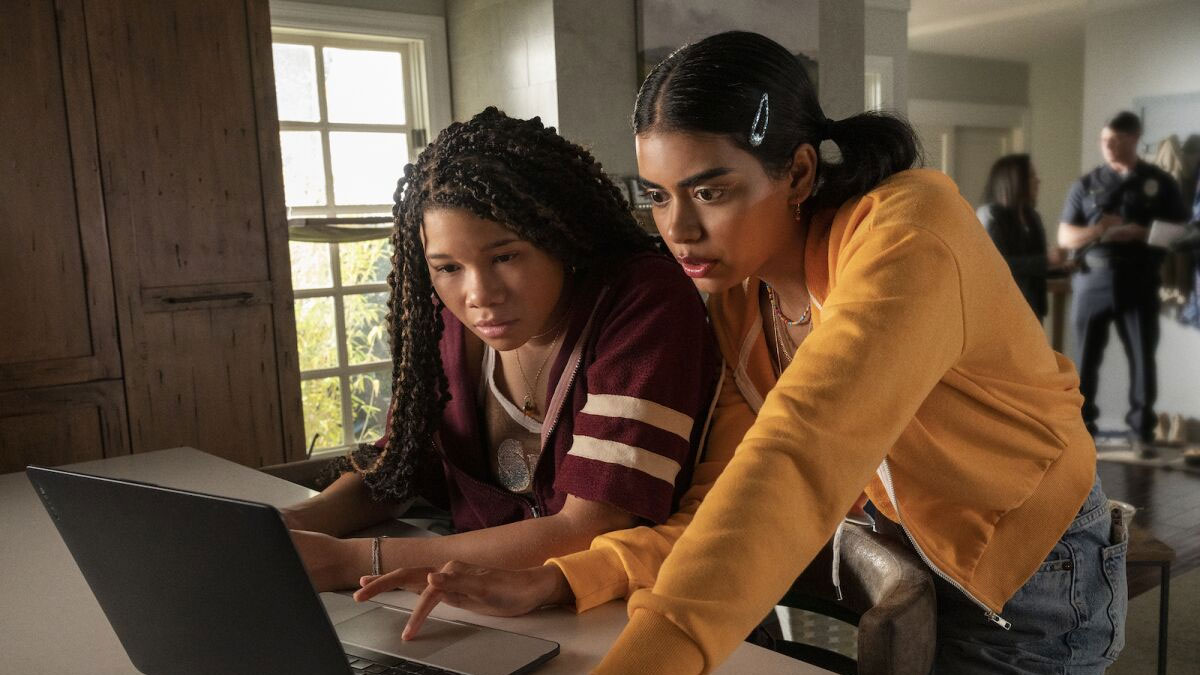The Plot: Teenager June (Storm Reid) is doted upon by her mother Grace (Nia Long), but isn’t too fond of her new stepfather Kevin (Ken Leung). Missing her late father, she’s looking forward to having the house to herself when the couple jet off to Colombia for a holiday. When Grace doesn’t show up at the airport on the way back, June panics and starts to worry about what’s happened to her. Using her internet-savvy skills, she attempts to track down her mother from Los Angeles with the help of Cartagena local Javi (Joaquim de Almeida). Hacking into e-mails and social media accounts, she uncovers a spider’s web of problems and potential leads, starting with one particular person…
The Verdict: For some strange reason screenlife films, i.e. those that take place entirely within a computer screen, continue to persist. That may be due to the ongoing efforts of Night Watch director and now producer Timur Bekmambetov. The man just won’t put the laptop away and attempt to tell a story the traditional way. At best, screenlife films are moderately intriguing like Searching. At worst, they’re deathly boring endurance tests like Unfriended or Dashcam. Searching though is an example of how to merge the admittedly clunky concept with a traditional genre film and somehow manage to connect the dots, like an interactive version of a police detective’s investigation board with pins and strings. Instead, there are devices, e-mails, messages, chats, camera footage and secret platforms that mask the truth. That’s where we find ourselves once again with Missing.
It’s not as was initially suggested a spin-off from Searching but a sort-of standalone sequel given that it ties in with news footage from its predecessor. The trick here though is that it flips the script, making the parent the missing person and not the child. Grace goes missing and the trail goes cold several times between Los Angeles and Cartagena and even the police are stumped. June then is left to put the pieces of the puzzle together until it all adds up before it’s too late. Fortunately for the film, it adds up too on the narrative front. Following a similar format to Searching, the propulsive story ticking away in the background is cleverly structured to reveal only what it needs to at a particular time. There’s a great sense of urgency at play here, but co-directors Nicholas D. Johnson and Will Merrick are not averse to briefly taking a breather to expand on characterisation and particular motivations. That’s the kind of footage that would be first to go in the editing room, so that layering in of backstory goes some way to adding dramatic effect.
If anything here, Missing is a more focused film than its predecessor. The main plot and sub-plots are more deviously constructed, the tension is amped up to include panicky street footage and even amusingly references itself in a throwaway online comment about how a screenplay could be constructed from all this. The labyrinthine web of information on display involving digital footprints across various platforms is scarily realistic to the point where a digital detox might be in order afterwards. Is your device spying on you and tracking your every move? If Sherlock Holmes was around today, he’d have a field day with social media. In a sense, Missing is a modern detective story taken from the perspective of the digital age, but with a cautionary angle about how much information about us is online. It wobbles a bit in the third act when the twist is not much of a twist after all and the film resorts to murky domestic footage to wrap it up. However, the lead-up to all this is well-executed and convincingly done by the cast including an engaging Storm Reid, boxed in by her environment but breaking out of it. For once, Missing is a screenlife film that will hold your attention throughout and is worth pressing play on.
Rating: 3.5 / 5
Review by Gareth O’Connor


In short: Press play
Directed by Nicholas D. Johnson, Will Merrick.
Starring Storm Reid, Nia Long, Ken Leung, Joaquim de Almeida, Tim Griffin.


